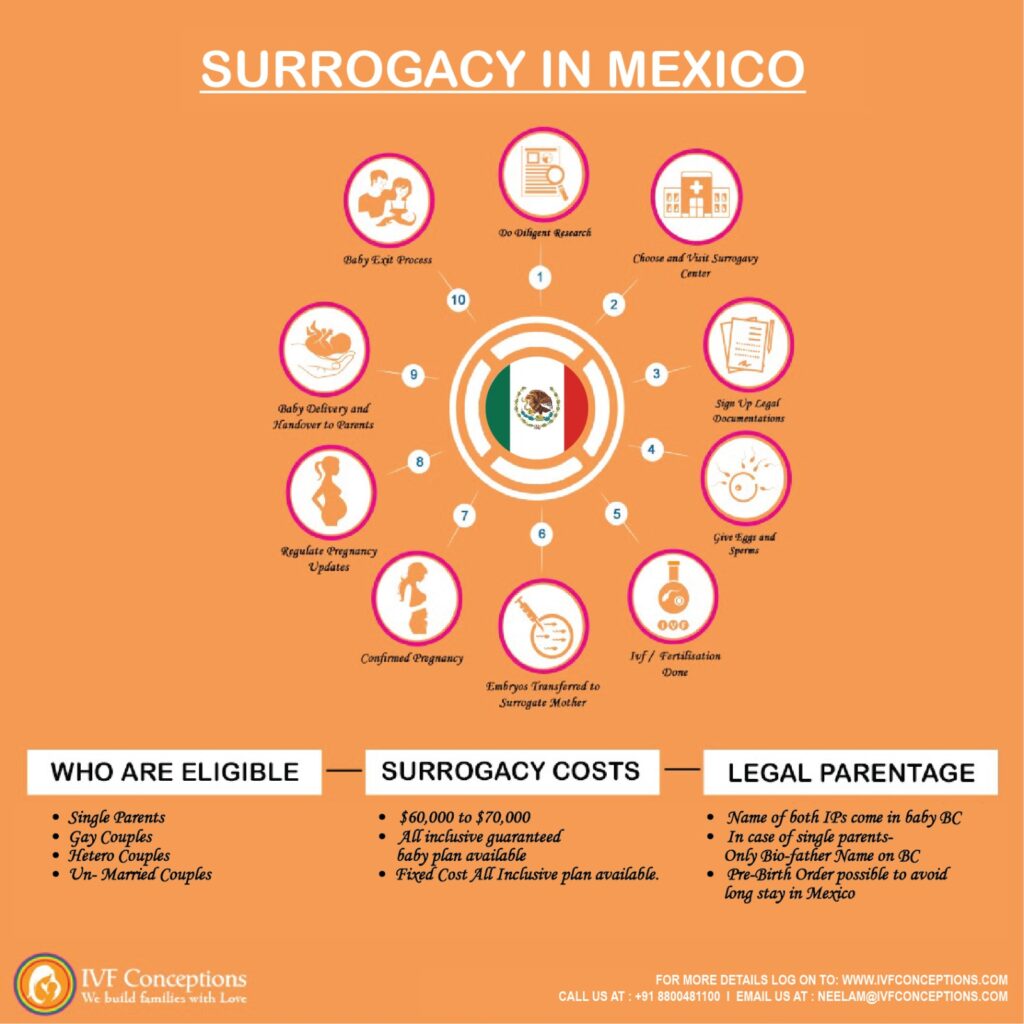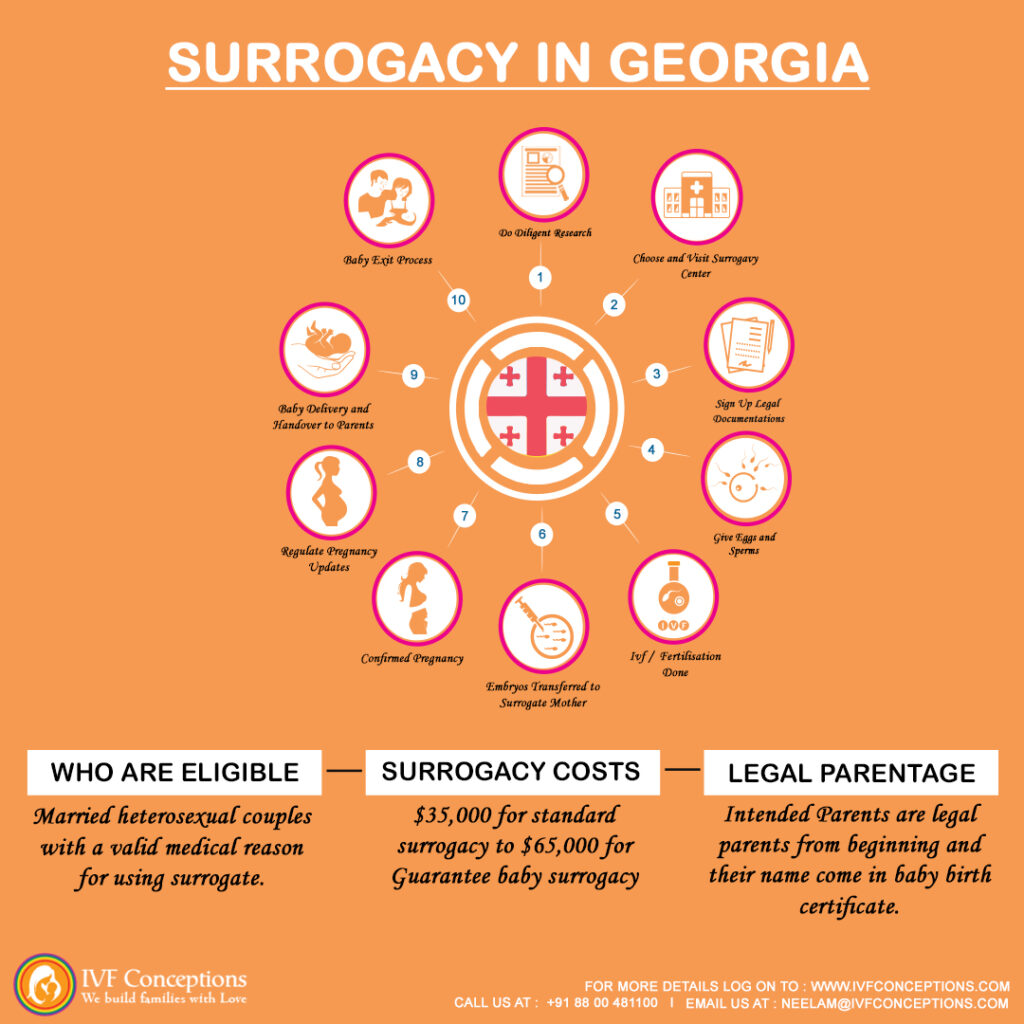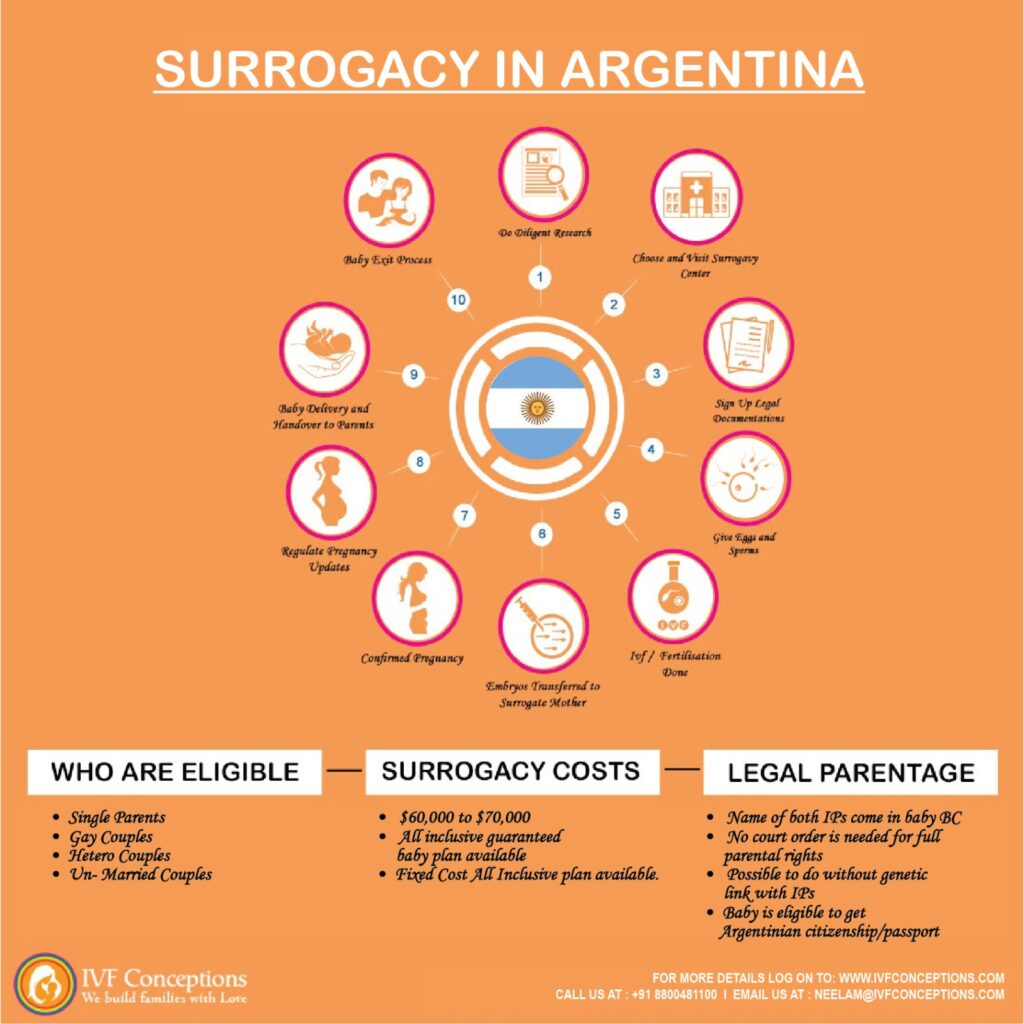Gestational Surrogacy In Texas: A Comprehensive Guide

Surrogacy in Texas offers hope to single individuals and couples seeking to experience motherhood. Situated in the heart of the Lone Star State, it has gained popularity as a viable option for those facing fertility challenges. This act of kindness allows individuals and couples, regardless of their circumstances, to fulfill their desire for parenthood.
It caters to a variety of family structures and needs through both traditional and gestational methods. The regulations in Texas, however, are currently limited to married couples, even when donor gametes are used.
Get in touch for a Free Surrogacy Consultancy:
📲 +91-8800481100 ( WhatsApp, Line, Viber)
Courts have the discretion to grant paternity to single individuals and unmarried couples in specific cases. Moreover, Texas’s laws on gestational surrogacy only apply when the mother is not biologically related to the child she carries.
Additional guide for intended parents:
An Overview Of Surrogacy In Texas
Surrogacy is permitted in Texas, despite the state’s regulations requiring court approval of agreements before the procedure. Many courts approve these agreements as part of the parentage declaration process. This approach simplifies the legal aspects of surrogacy for those involved.
There are no state laws restricting a gestational surrogate’s compensation for her services in Texas. This provision ensures that surrogates are fairly compensated for their role in the surrogacy process.
Traditional surrogacy is also allowed in Texas but is treated as an adoption. This means a traditional surrogate must relinquish her parental rights within 48 hours of the child’s birth. The state’s regulations for traditional surrogacy require all documentation to be submitted post-childbirth and may limit the surrogate’s compensation.
A surrogacy contract is legally enforceable if it meets all the criteria set by Texas’s surrogacy legislation. This legal framework provides a structured path for all parties involved in the agreement.
Parentage orders for surrogacy can be issued by courts to unmarried couples or individuals seeking surrogacy. However, the state’s statutes specifically address married couples receiving such orders. The availability of a pre-birth parentage order is subject to the court’s discretion and the judge handling the case.
In Texas, intended parents can obtain a pre-birth or post-birth parentage order, eliminating the need for an adoption post-birth. They will typically need to complete an adoption if they cannot secure a parentage order to establish their parental rights to the surrogate child.
Second-parent adoptions are permitted in Texas, despite certain restrictions. These adoptions are often in the best interest of the child, making them accessible to single intended parents.

Why Choose Texas for Surrogacy?
- Favorable Laws
Texas provides one of the most secure legal frameworks for gestational surrogacy in the U.S. - Experienced Professionals
The state is home to many reputable surrogacy agencies, attorneys, and fertility clinics. - Competitive Costs
The cost of surrogacy in Texas is reasonable compared to other states with similar legal and medical standards.
Legal Framework for Surrogacy in Texas
Texas has a highly supportive legal environment for gestational surrogacy. Key aspects include:
- Gestational Surrogacy Agreements
Gestational surrogacy agreements, where the surrogate has no genetic link to the child, are legally enforceable in Texas. - Pre-Birth Orders
Intended parents can obtain pre-birth orders, allowing their names to appear on the child’s birth certificate immediately after delivery. - Legal Representation
Both the surrogate and the intended parents must have independent legal counsel to ensure fair and enforceable agreements.
Surrogacy Laws In Texas
Couples may choose surrogacy for various reasons, such as being same-sex, dealing with health issues, or fearing genetic conditions. Those entering into surrogacy contracts must carefully review the agreement’s details. Given the emotional complexity involved, these agreements can be challenging to navigate.
Texas is known for its welcoming stance on surrogacy. The Texas Family Code dedicates a section to surrogacy agreements. Any surrogacy agreement involving intended parents or the mother living in Texas is subject to these laws.
The legal framework and procedures for gestational surrogacy in Texas ensure the successful transfer of an embryo to a surrogate mother. Both parties’ rights are protected by the law, reinforced through the legal process of a surrogacy contract.
Surrogacy Agreement and Texas surrogacy law
A legally binding surrogacy agreement is essential to protect the intended parents’ rights. A court hearing and a petition must be filed and submitted by the parties for validation. If the intended parents provide the necessary medical documentation, a court is likely to uphold the agreement.
If:
The agreement is deemed valid.
● The prospective parents finish a home study that involves clearance and a background check.
● The surrogate is medically competent to carry another pregnancy because she has already experienced one.
● The parties have agreed upon their respective financial obligations for the proceeding, and
● The intended mother is incapable of giving birth.
Only circumstances where the surrogate mother is not genetically related to the child are covered by Texas’ surrogacy regulations. Usually, married couples are the only ones covered by the law.
Parents and the surrogate should prepare and negotiate a contract outlining the financial and social requirements before starting the surrogacy process.
The financial pay for the surrogate is negotiated by the attorneys of both parties. Parents may pay to support the surrogate during the pregnancy if specified in the contract. The needs may include things like pregnancy clothing or other needs brought on by bed rest.
The contract’s social requirements section might bargain over attendance during prenatal visits and birth. As part of the social agreement, the surrogate’s duties may also include refraining from using drugs and alcohol.
Pre-Birth orders
Pre-birth orders are not necessary in Texas, but their absence could make the Gestational Surrogacy Agreement void and provide the surrogate with the opportunity to fight for the child’s rights.
Pre-birth orders can only be filed if the parents have:
● A doctor’s affidavit confirming the embryos’ transfer to the surrogate,
● Social media records related to surrogacy,
● signed documentation from the surrogate family giving up the child’s post-birth legal rights.
Adoption is one of the legal processes that may occur after birth when one or both of the intended parents are not biologically related to the child.

How Much Does Surrogacy Cost in Texas?
So, how much is surrogacy in Texas?
Texas is one of the most surrogacy-friendly states in the U.S., offering strong legal protections for intended parents. The surrogacy cost in Texas typically ranges between $90,000 and $160,000, depending on several factors like agency fees, surrogate compensation, and medical expenses.
In this section, we’ll break down the cost of surrogacy in Texas to help intended parents understand the financial requirements for their journey.
Breakdown of Surrogacy Costs in Texas
Here’s a detailed look at the surrogate cost in Texas:
- Agency Fees
Surrogacy agencies in Texas provide essential services like matching, screening, and coordination. Fees range from $15,000 to $30,000. - Surrogate Compensation
Surrogates in Texas typically receive base compensation of $40,000 to $65,000, along with additional allowances for expenses like maternity clothing and travel. - Medical Costs
These include IVF treatments, embryo transfers, and prenatal care, costing between $30,000 and $50,000. - Legal Fees
Drafting surrogacy agreements and securing pre-birth orders for parental rights typically cost between $8,000 and $15,000. - Insurance and Miscellaneous Expenses
Additional costs like health insurance, travel, and psychological counseling can add $10,000 to $20,000.
Average Cost of Surrogacy
| Expense Category | Estimated Cost Range (USD) |
| Agency Fees | $15,000 – $30,000 |
| Surrogate Compensation | $40,000 – $65,000 |
| Medical Costs | $30,000 – $50,000 |
| Legal Fees | $8,000 – $15,000 |
| Insurance & Miscellaneous | $10,000 – $20,000 |
| Total Estimated Cost | $90,000 – $160,000 |
Factors Affecting Surrogacy Costs in Texas
The cost of surrogacy in Texas can vary based on the following factors:
- Experience of the Surrogate
First-time surrogates generally have lower compensation compared to experienced surrogates. - Medical Complexity
If multiple IVF cycles or advanced procedures like PGT (preimplantation genetic testing) are required, costs may increase. - Insurance Needs
If the surrogate requires supplemental health insurance, this will add to the overall expense. - Location of Intended Parents
Out-of-state or international intended parents may face higher travel and accommodation costs.
Cost-Saving Strategies for Surrogacy in Texas
Here are some practical tips to manage the surrogate Price in Texas:
- Work with a Known Surrogate
Opting for a family member or friend as a surrogate can save on agency fees and compensation. - Bundle Services
Many agencies and clinics offer bundled packages that reduce overall costs. - Choose Local Clinics
Using Texas-based fertility clinics minimizes travel-related expenses. - Consider Financing Options
Some agencies and clinics offer flexible payment plans to spread the cost over time.
Cost-Saving Strategies Table
| Strategy | Potential Savings (USD) |
| Work with a known surrogate | $10,000 – $30,000 |
| Opt for bundled packages | $5,000 – $15,000 |
| Use local clinics and agencies | $5,000 – $10,000 |
| Choose financing plans | Flexible monthly payments |
The surrogacy cost in Texas typically ranges from $90,000 to $160,000, making it a competitive and attractive option for intended parents. With its supportive legal framework and professional services, Texas offers a secure and reliable path to parenthood through surrogacy.
If you’re considering surrogacy in Texas, consult with a trusted surrogacy agency or legal expert to plan your journey with confidence.
Gestational Surrogacy Process In Texas for Intended Parents
The surrogacy journey in Texas typically spans 15 to 18 months. However, this timeframe can vary based on individual circumstances. Additional time may be needed if egg or sperm donation is required, extending the process by three to four months.
The surrogacy process takes 18 months to 24 months depending upon the individual circumstances
Outlines the surrogacy process timeline for intended parents:
| Stage | Description of Stage | Duration |
| Research Phase | Explore family building options and decide on surrogacy. | Personal timeframe |
| Consultation and Application | Choose a surrogacy agency, sign agreement, and start embryo creation (if needed). | 1-3 Months |
| Matching | Agency finds and presents potential gestational carriers. Meet and decide on a match. | 3-6 Months |
| Medical Screening and Contracts | Carrier undergoes medical and psychological screening. Sign surrogacy contract. | 1-2 Months |
| Embryo Transfer | Prepare for embryo transfer. Success may take multiple attempts. | 1-1.5 Months |
| Pregnancy | Gestational carrier’s pregnancy, approximately 40 weeks. | 9-10 Months |
| Birth and Postpartum | Baby’s birth, establish parental rights, and postpartum period. | 1.5-3 Months |
The journey involves seven key steps:
1. Determine whether or not surrogacy in Texas is the best option for you and your family.
2. Locate a surrogacy agency in Texas to prepare for the process.
3. Find a surrogate mother with desirable qualities.
4. Meet legal criteria, consult a lawyer, and sign a contract.
5. Begin the medical surrogacy process.
6. Spend time with the surrogate before the baby’s birth.
7. Obtain your baby and legal parentage after delivery.

How To Find A Surrogate Mother In Texas? | Become a surrogate in Texas
Choosing the right surrogate is a critical decision in the surrogacy process. Some intended parents opt for a known surrogate, such as a friend or relative. Others may need to invest time and effort to find a suitable surrogate.
Deciding whether to find a surrogate independently or through an agency is the first step. A surrogacy agency can help locate pre-screened and authorized surrogate mothers. Together, you and a specialist will select a surrogate who aligns with your goals.
Top Affordable Surrogacy Destinations- Cheapest Countries for Surrogacy
Below is a look at some of the most cost-effective international surrogacy destinations, including their processes, costs, legal frameworks, and eligibility criteria.
1. Surrogacy in Mexico
- Surrogacy Process: Surrogacy in Mexico is mostly unregulated, except in specific states like Tabasco, where arrangements are managed through private agreements with clinics.
- Cost Range: The typical cost of surrogacy in Mexico ranges from $60,000 to $80,000.
- Legal Framework: Surrogacy is limited to heterosexual married couples or single parents, depending on the state.
- Eligibility Criteria: Legal contracts are mandatory, and intended parents should collaborate with experienced lawyers to ensure enforceability.

2. Surrogacy in Colombia
- Surrogacy Process: Altruistic surrogacy is permitted in Colombia, supported by legally binding contracts and access to affordable IVF treatments.
- Cost Range: The cost of surrogacy in Colombia generally ranges between $60,000 and $70,000.
- Legal Framework: Surrogacy is available to heterosexual couples and single parents.
- Eligibility Criteria: There are no citizenship requirements, but contracts must adhere to Colombian legal standards.
3. Surrogacy in Georgia (country)
- Surrogacy Process: Georgia has clear and established surrogacy laws, ensuring that agreements are legally binding.
- Cost Range: The total cost of surrogacy in Georgia typically falls between $50,000 and $70,000.
- Legal Framework: Surrogacy is restricted to heterosexual married couples, with parental rights granted solely to the intended parents.
- Eligibility Criteria: Couples must provide a marriage certificate proving at least one year of partnership.

4. Surrogacy in Ukraine
- Surrogacy Process: Previously a favored destination, Ukraine offered transparent procedures and robust legal protections before the geopolitical crisis.
- Cost Range: Surrogacy costs in Ukraine typically range from $50,000 to $70,000.
- Legal Framework: Surrogacy is restricted to heterosexual married couples, with surrogates having no parental rights.
- Eligibility Criteria: Intended parents must be married heterosexual couples and provide proof of medical necessity for surrogacy.
5. Surrogacy in Armenia
- Surrogacy Process: Armenia offers legal certainty through its surrogacy laws, making it an increasingly popular choice for intended parents.
- Cost Range: Surrogacy in Armenia typically costs between $50,000 and $70,000.
- Legal Framework: Surrogacy is available exclusively to heterosexual married couples.
- Eligibility Criteria: Couples must be married, and the female partner must be under the age of 53.
6. Surrogacy in Argentina
- Surrogacy Process: Altruistic surrogacy is common, though contracts are not legally enforceable. Intended families collaborate closely with surrogates and clinics.
- Cost Range: The typical cost of surrogacy ranges from $50,000 to $70,000.
- Legal Framework: While there are no explicit surrogacy laws, it is recognized under family law and open to all family types, including LGBTQ+ couples.
- Eligibility Criteria: Working with legal experts is essential to navigate the informal surrogacy framework effectively.

7. Surrogacy in India
- Surrogacy Process: India has reopened surrogacy exclusively for Indian citizens, focusing solely on altruistic arrangements.
- Cost Range: The cost of surrogacy in India typically ranges from $25,000 to $40,000.
- Legal Framework: Surrogacy is limited to heterosexual married Indian couples, NRI, or OCI cardholders who meet specific conditions. Commercial surrogacy is strictly prohibited.
- Eligibility Criteria: Intended parents must hold Indian citizenship, NRI, or OCI status and provide medical documentation demonstrating the need for surrogacy.
Comparative Table: Surrogacy Costs in the USA and Surrogacy Abroad Countries
| Country | Cost Range | Legal Framework | Eligibility Criteria | Key Feature |
| USA | $120,000–$200,000 | Fully regulated, binding | Open to all family types | High-quality medical and legal services |
| Mexico | $60,000–$80,000 | Semi-regulated, binding in parts | Heterosexual married couples, singles | Lower costs and proximity for Americans |
| Colombia | $50,000–$70,000 | Binding legal contracts | Open to heterosexual couples, singles | Affordable and accessible IVF treatments |
| Georgia | $40,000–$60,000 | Strict legal framework | Heterosexual married couples | Strong legal protection |
| Ukraine | $40,000–$70,000 | Strict legal framework | Heterosexual married couples | Transparent and reliable processes |
| Armenia | $50,000–$70,000 | Strong legal protections | Heterosexual married couples | Growing popularity with legal certainty |
| Argentina | $40,000–$60,000 | Informal, family law-based | Open to all family types | LGBTQ+ friendly with affordable options |
| India | $25,000–$40,000 | Strict, altruistic only | Indian citizens only | Most affordable option for eligible parents |
Looking for the best Surrogacy clinic / Surrogacy agency abroad?
We are here to help with more than 15 years of experience in offering safe, reliable and affordable surrogacy options globally.
We analyze your needs, budget planning, egg donor availability, destination preferences with legal framework and find top surrogacy country and agencies for you!
Our consulting services are free of cost and do not affect your costing in any way but help you to save tons of research time and money.
Additional guide for intended parents:
Conclusion
For those struggling to conceive naturally, surrogacy in Texas offers a viable alternative. The state’s laws allow married intended parents to engage in gestational surrogacy, ensuring their legal rights as parents. The birth certificate reflects the biological parent if the parents are unmarried. Same-sex parents follow the same legal process.
Our Complete Surrogacy Consulting Services /Case Management cover a wide range of services globally, including:
✓ Guide and Support to choose the secure and legal surrogacy program
✓ Surrogacy clinic and agency recommendations
✓ Legal support and referrals
✓ Logistic support/planning
✓ Surrogacy agency liaison
✓ Financial planning/financial aids
✓ Citizenship and passport assistance
✓ Case management
✓ Shipment assistance
✓ Collaborations with third-party support (if you have your own clinic/agency to make sure your program is done properly)
✓ Quick and transparent communication
At COMPLETE SURROGACY our goal is to ensure a affordable, reliable, smooth and supportive experience as you start this remarkable journey towards parenthood. If there are any specific questions, concerns, or details you’d like to discuss, please don’t hesitate to let me know.
We are happy to assist you with one of our global surrogacy programs best suited you your personal and legal needs. I am here to assist you every step of the way
Get in touch for a Free Surrogacy Consultancy:
📲 +91-8800481100 ( WhatsApp, Line, Viber)

Frequently Asked Questions about Surrogacy in Texas
1. What is surrogacy and is it legal in Texas?
Surrogacy is a reproductive method where a woman carries and delivers a baby for another person or couple. In Texas, surrogacy is legal, provided certain requirements are met. The process must adhere to the state’s laws and regulations.
2. What is the difference between gestational surrogacy and traditional surrogacy?
Gestational surrogacy involves implanting an embryo created from the intended parents’ or donors’ genetic material into the surrogate. In contrast, traditional surrogacy uses the surrogate’s own egg, making her the biological mother. In Texas, gestational surrogacy is preferred due to its legal and emotional simplicity compared to traditional surrogacy.
3. What are the legal implications of surrogacy in Texas for intended parents?
Intended parents in Texas must grasp the parental rights and legal duties tied to surrogacy agreements. It’s vital to collaborate with a skilled surrogacy attorney. This ensures all legal aspects are addressed and the process aligns with Texas surrogacy law.
4. How does the surrogacy process work for couples or individuals in Texas?
The surrogacy process in Texas begins with finding a suitable surrogate. It involves medical and psychological evaluations and drafting a surrogacy agreement. The agreement outlines the rights and responsibilities of all parties. Understanding the pre-birth order process in Texas is crucial to establish legal parentage before the child’s birth.
5. Can same-sex couples or individuals become parents through surrogacy in Texas?
Same-sex couples and individuals in Texas can explore surrogacy to achieve their parenting aspirations.
ogacy countries with affordable, low-cost surrogacy programs like Mexico, Colombia, Argentina, Georgia, and Ukraine.
Q4. What are the requirements for becoming a surrogate mother in the USA?
Ans. The criteria for becoming a surrogate mother include:
● You must meet specific requirements.
● Having delivered a child of your own and parenting at least one child is necessary.
● Uncomplicated pregnancies and deliveries are required, as documented by medical records.
● Age requirements range from 21 to 44 years old.
● The Body Mass Index (BMI) should not exceed 33.
● You must be a citizen, legal resident, or legal immigrant of the United States.
● You should be medically and psychologically sound.
Q5. Can you help us find a low-cost surrogate mother?
Ans. Yes, we have been active in international surrogacy for 13 years. We have networks of trusted fertility clinics and surrogacy agencies globally. Our expertise spans the best and most legal international surrogacy countries.
Disclaimer:
All legal information on this website is intended only as a guide and is not a replacement for the opinions of licensed legal professionals/Medical professionals. Some information may have changed since the time of publication. We advise you to consult a licensed attorney/Medical expert with authority in fertility/surrogacy processes.

Author Bio: Neelam Chhagani is an International Surrogacy Expert with 15 years of experience in the fertility and surrogacy domain. As the founder of IVF Conceptions and Complete Surrogacy, she has guided over 4,000 intended parents worldwide on their surrogacy journey to parenthood. Recognized as a trusted authority, she specializes in holistic infertility solutions and third-party reproduction consulting.
Holding an MA in Counselling Psychology and a PGD in Mental Health, Neelam is a proud member of the European Fertility Society (EFS) and the European Society of Human Reproduction and Embryology (ESHRE). She is also a leading surrogacy blogger, providing valuable insights into ethical and practical surrogacy solutions.
Since 2010, committed to supporting ALL family types, Neelam has been passionate about helping intended parents grow their families with compassion, integrity, and a focus on secure and affordable surrogacy options Globally.
Learn more about Neelam:
https://www.ivfconceptions.com/neelam-chhagani-surrogacy-consultant/
https://www.linkedin.com/in/neelam-chhagani-92892229/















I was introduced to Neelam by a friend who worked with Neelam for surrogacy. Neelam is absolutely wonderful. I am a single male and the journey to fatherhood is not that easy. Neelam connected me to a program ideal for my circumstances. She was with me throughout the pregnancy providing advice and guidance along the way. I am so grateful I found her and am thrilled today that I have a beautiful daughter. I highly recommend Neelam to anyone who is on a journey to become a parent. Having a child has changed my world for the better. I wish others success with their own journey and recommend you connect with Neelam to find a path that is best for you.
SA (USA)